My favorite FF games are FF6, FF4, and FF9.
FF6 is on my list of my top five favorite games of all time.
Even though I had played FF1 and Dragon Warrior on the NES, FF4 is the game that got me into RPGs.
FF9 is what FF7 and 8 should've been.
So many crystals, chocobos, and moogles, all in one place!
10:
Ah, Final Fantasy. The game that kicked off a multi-million selling franchise, spawned a plethora of spinoffs, and has spanned every generation of consoles and handhelds since its release in 1987. As the legend goes, director Hironobu Sakaguchi was ready to give up on game design, and Final Fantasy was to be his last game until it became a massive success. That story has been proven false over time, as the reality was that “Final Fantasy” was a name that would be easy for Japanese tongues to pronounce. Even so, the legend has a magical appeal to it, since it became the game that ushered Squaresoft into the spotlight. Borrowing heavily from Dungeons & Dragons, the original FF has a ton of things that carry over into the rest of the series. From iconic job classes like monk, thief, and black mage to airships and a catchy soundtrack, there is no doubt why this first game took off in the way it did, even finding success when it was released in the US in 1990.

I still enjoy Final Fantasy I to this day, even if it is obviously the most dated of the series. It certainly one of the toughest games of the core fifteen titles, requiring plenty of grinding, keeping on top of equipment and spell purchases, and talking to everyone in town to get that one piece of vital information needed to progress. As arcane as it is challenging, my love for this game is largely based on nostalgia, and as such I have replayed it more than most of the other games. If you’ve never played it and you’re curious about the genesis of Final Fantasy, I recommend playing the version on the PlayStation FF Origins collection, or the Game Boy Advance release of Final Fantasy I & II: Dawn of Souls. They add some hefty graphical upgrades, and some much needed quality of life improvements to the combat.
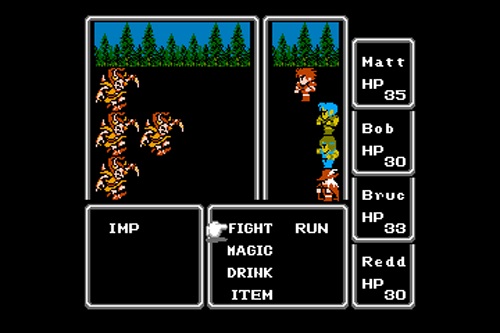
9: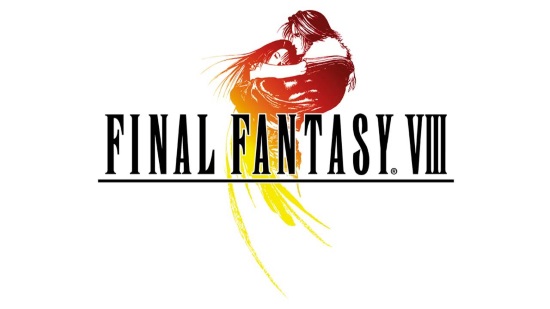
How do you follow up Final Fantasy VII, one of the biggest games in the franchise, and the game that not only introduced a legion of new players to the series, but helped cement the original PlayStation’s place at the top of the gaming landscape? If you’re Squaresoft, you double down on the cinematic flair of that game, bump up the realism in the graphics by 100%, and create a battle system that is as deeply flawed as it is complex and rewarding for those who learned how to engage with it. Final Fantasy VIII was a technical marvel that was released on 9/9/99, the same day as the Sega Dreamcast. The launch of a brand new console couldn’t stop FF VIII’s domination of the charts, and while the game remains a polarizing one amongst Final Fantasy fans, it retains its classic status for being released in a time when Squaresoft could seemingly do no wrong.

I have complex emotions about Final Fantasy VIII. It’s one of my less favorite games in the series, but it’s also the one I think about replaying the most. It was promoted as a love story, but nineteen-year-old Julian wasn’t prepared for the very Japanese manga flavor of said love story, which led to some infuriatingly frustrating moments for me. I had similar issues with the battle system. While the Junction System is an interesting way of augmenting your character’s stats by affixing magic spells to their attack, hit points, defense, and so on, it meant that using magic would weaken your party over time. That is, unless you wanted to go out of your way to replenish your magic stocks by “drawing” (syphoning from enemies) additional spells. This game never quite clicked with me, but I keep wondering if I will have different feelings if I play it today.
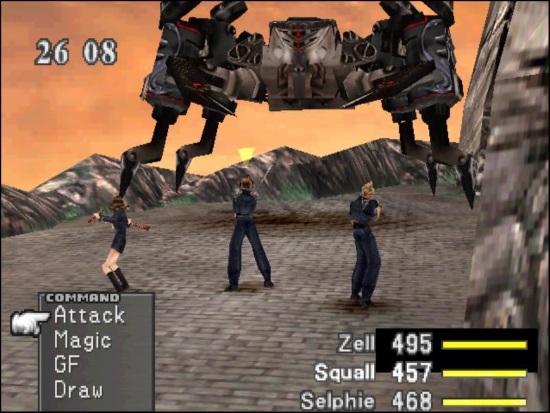
8:
There are a handful of big moments in the history of Final Fantasy, and the release of Final Fantasy VII in 1997 is certainly one of those benchmark events. The series had seen great success on Nintendo consoles since its inception, but when Nintendo opted to stick with the expensive and limiting cartridge format for their Nintendo 64 console Squaresoft decided to throw in with Sony. Sony was very much a wild card in the video game market, getting in between the now decade long battle between Nintendo and Sega, so having a flagship franchise like Final Fantasy sign up was big news at the time. Sony went all in as well, co-publishing the game and handling the US marketing. It was largely this decision that catapulted Final Fantasy VII into superstardom; TV ads focused on the amazing CGI visuals, which caught the attention of thousands of players who had never played a role-playing game before. FF VII was the biggest budget game of the series up to that point, and the impressive visuals took an entirely new generation by storm. Final Fantasy had come into the CD-ROM age, and the series was forever changed.

Now, don’t get all bent out of shape because of where this landmark title is on my ranking. I freaking adored Final Fantasy VII when it came out. I was writing my own fanzine at the time and gave this game a score of 100/100. I fell in love with the struggle between Cloud and Sephiroth, and cried when Aerith died. However, twenty years on, I look back at this game as a point where the series lost so much. The reduction to a three-person party, the lack of equipment, the “blank slate” nature of the characters due to the materia system. It’s a fine game, and of the PlayStation releases I think it holds up the best graphically thanks to the Gourad-shaded polygons (as opposed to the texture maps seen in VIII and IX). However, it is a game that doesn’t hold up as well when I go back to it these days, and I prefer to leave this milestone to its place in Final Fantasy history.

7:
Final Fantasy XII was the first game in the series to have some developmental woes. It was originally directed by Yasumi Mitsuno of Tactics Ogre and Final Fantasy Tactics fame, but he took ill and the game was given over to Hiroshi Minagawa and Hiroyuki Ito. Development began as early as 2001, but FF XII wouldn’t see the light of day until 2006, in the waning years of the PlayStation 2. Taking place in the world of Ivalice from the FF Tactics series, Final Fantasy XII featured a distinct look to it, borrowing heavily from the aesthetic of the newer Star Wars films of the time. The battle system was a bone of conflict between players at the time, incorporating some real-time elements that would be right at home in an MMORPG, and a leveling system that eschewed defined character party roles for more of a Jack of all trades feel. The game did well financially and critically, but was not as universally praised as many of the fantasies that had come before it.

While I enjoyed Final Fantasy XII when it came out, I certainly didn’t appreciate it fully at the time. I had discovered Western RPGS by BioWare at this point in my life, and found myself much more invested in the worlds of Jade Empire and Mass Effect than that of XII’s Ivalice. The battle system felt like it took away a lot of my control, instead wanting me to pre-program my computer controlled party members with “gambits”, basically situational subroutines. However, playing it again this year with the PlayStation 4 HD release of Final Fantasy XII: The Zodiac Age, I see now that the game was simply ahead of its time. The battle system is highly rewarding when you delve into it, requiring a vast amount of quick-thinking strategy, and the newly added Zodiac Jobs system fixes the blank slate nature of the characters, even if most of the job abilities are woefully lacking in effectiveness. It remains a beautiful game to behold, and the hunt sidequests add hours to my playtime.
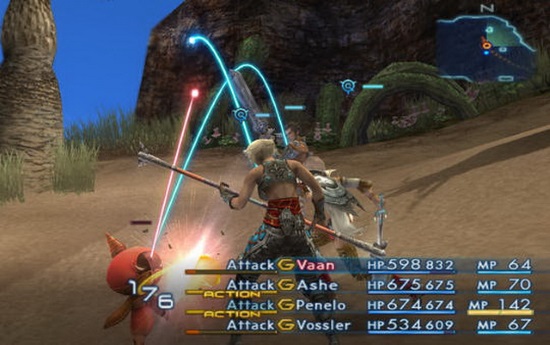
6:
After a spectacularly dismal launch, a new team came in to not only continue support of the first version of Final Fantasy XIV, but they went forward with a complete redesign from the ground up. The team worked on these projects simultaneously, and when Final Fantasy XIV: A Realm Reborn released in 2013, it found a receptive and thankful audience. What was once one of the biggest failures in the series was now a bonafide success that saw the release of its second full expansion this year: Stormblood. Featuring massively improved graphics and environments, a far more interesting battle system and quest line, and a storyline that worked the ending of FF XIV 1.0 in as part of the lore, A Realm Reborn made good as the successor to Final Fantasy XI Online.
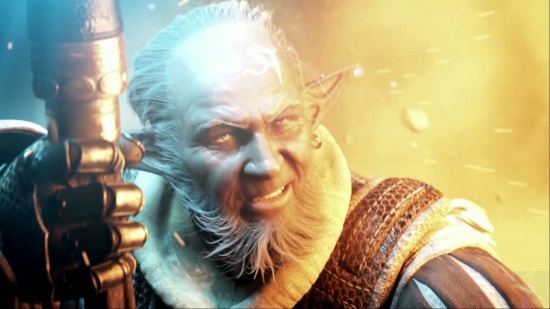
While I didn’t care for the vanilla release of FF XIV at all, A Realm Reborn has rapidly become one of my favorite games in the series. It’s well written with a large cast of interesting characters, features a plethora of loving tributes to the series as a whole, is fun to play solo or in a group, and is a bloody gorgeous game. It also has a fantastic soundtrack that, if not the best in the series, is certainly the most in the series. No, really-it boasts the most music in a single video game. Honestly, the only thing that keeps it from going higher in this ranking is the fact that, for a massively multiplayer RPG, it is far less social than its predecessor, Final Fantasy XI Online. As such, I only play it with my best friend and some of our old FF XI people. Having said that, I thoroughly enjoy romping through the world of Eorzea on a weekly basis.
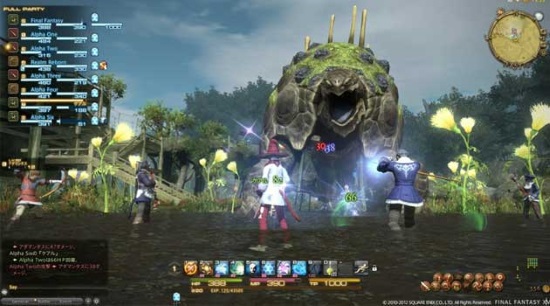
I played some of the first FF and forget what I thought of it. Then I played FF IV and loved that, although, I didn't beat it, yet. I've always meant to get more into FF even when I bought FFXII and didn't get more than a few hours into it, being baffled by the battle system. I think I might try and get into some of these later this year when I revisit '87-91. That would be FFI-IV. I'll take your advice and try and get that GBA version of FFI, but maybe it's downloadable on PS4? I know it was a in PSOne Classics on PS3 a while back. Oh wait. . . I just realized I still have the NES cart. Phew. That one's taken care of.
I grew up with FF II and III (IV and VI). I have tons of nostalgia for those games, especially VI. I've beaten FF III, VI, and IX. FFVI is my favorite RPG, the story, characters, and music are all incredible. I've gotten very close to beating FFI and IV, but they get quite brutal at the end!
It's ironic that some gamers thought FFIX wasn't "a true Final Fantasy game" when in reality, FFVII and VIII were far removed from what a FF game was. Love the series on a whole!
Comments